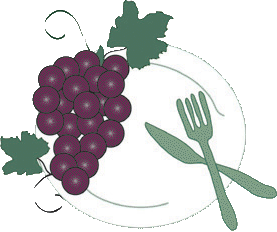
The food news may seem depressing, but there's hope. Bear with us.
In 1651, Thomas Hobbes, not known for his optimism, wrote that the life of man was doomed to be nasty, brutish, and short.
Couple hundred years later, the even less-cheery Thomas Malthus predicted that the Industrial Revolution would cause worldwide famine.
Yet humans survive, even prosper. Oh, sure, we waste resources fighting one another. Granted, too, that political systems everywhere seem to encourage government corruption, the taxing of our labors and the looting of our savings. And yet, we're pretty well off, compared to cave-dwellers. How come?
A new book by UC Davis prof Gregory Clark argues that it was the social structure of Great Britain in the 1800s (what we'd call English "politeness") that made possible the Industrial Revolution and our modern economy. But ten years ago, UCLA's Jared Diamond attributed that shift to something even more basic: better food. Western Europe's cultural leadership, Diamond argues, has less to do with social conventions than an accident of geography: communication along east-west latitudes allowed for easier migration, with similar crops. Surplus food supplies allowed for the specialization of labor and creative thinking.
Now lo and behold: extra food, stored as fat, enhances brain functions. (Links to NYTimes articles may require free registration.) Score another point for Nina Planck, Cornichon's favorite nutritionist and author of Real Food who's been saying that politically incorrect food like cholesterol-rich animal fat is good for you. Raw milk, too, according to this morning's NYTimes. Gutsy, that Nina, standing up to the Food Nazis at the FDA and the Nutrition Taliban at CSPI (Center for Science in the [Supposed] Public Interest). Pass the butter!
Posted by Ronald Holden at August 8, 2007 10:15 AM

The International Kitchen
Cooking school vacations in Italy, France & Spain.


 Who links to me?
Who links to me?